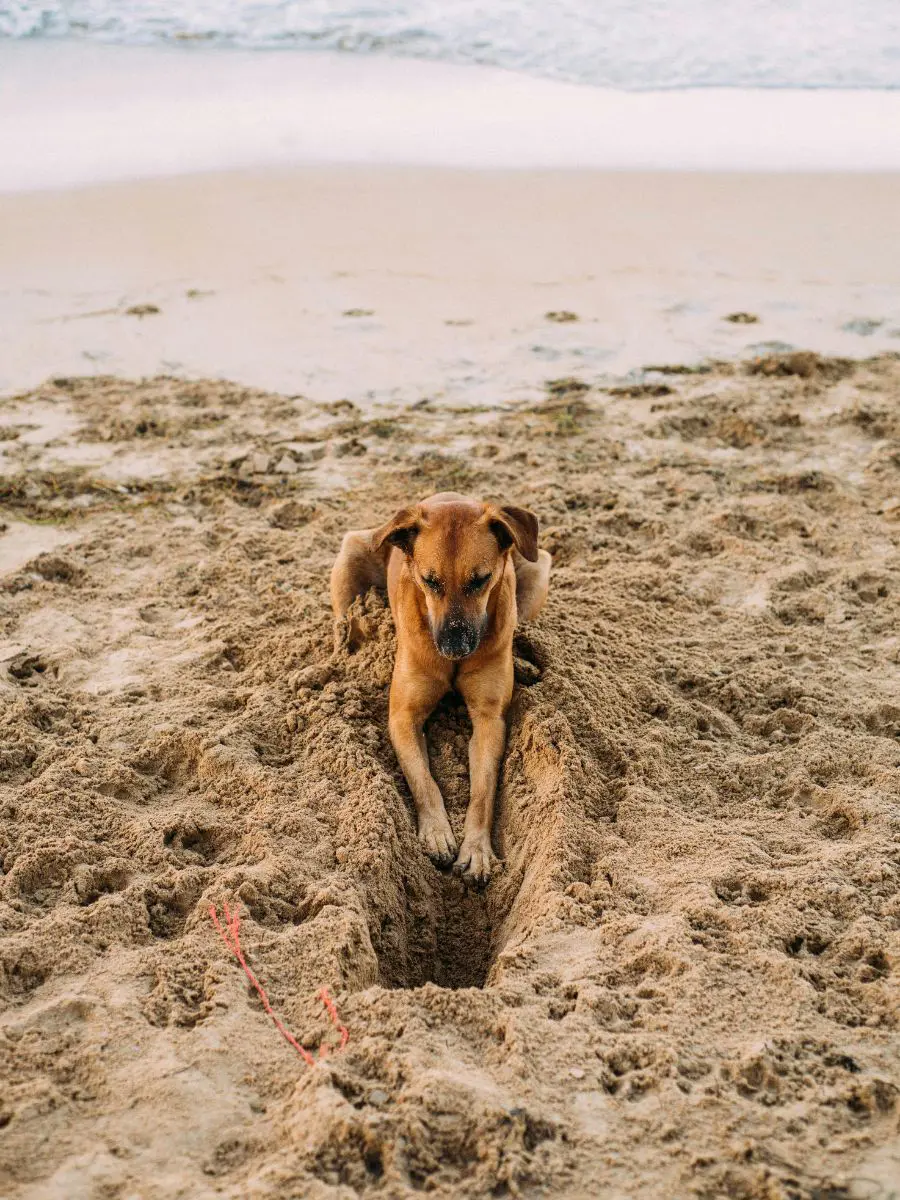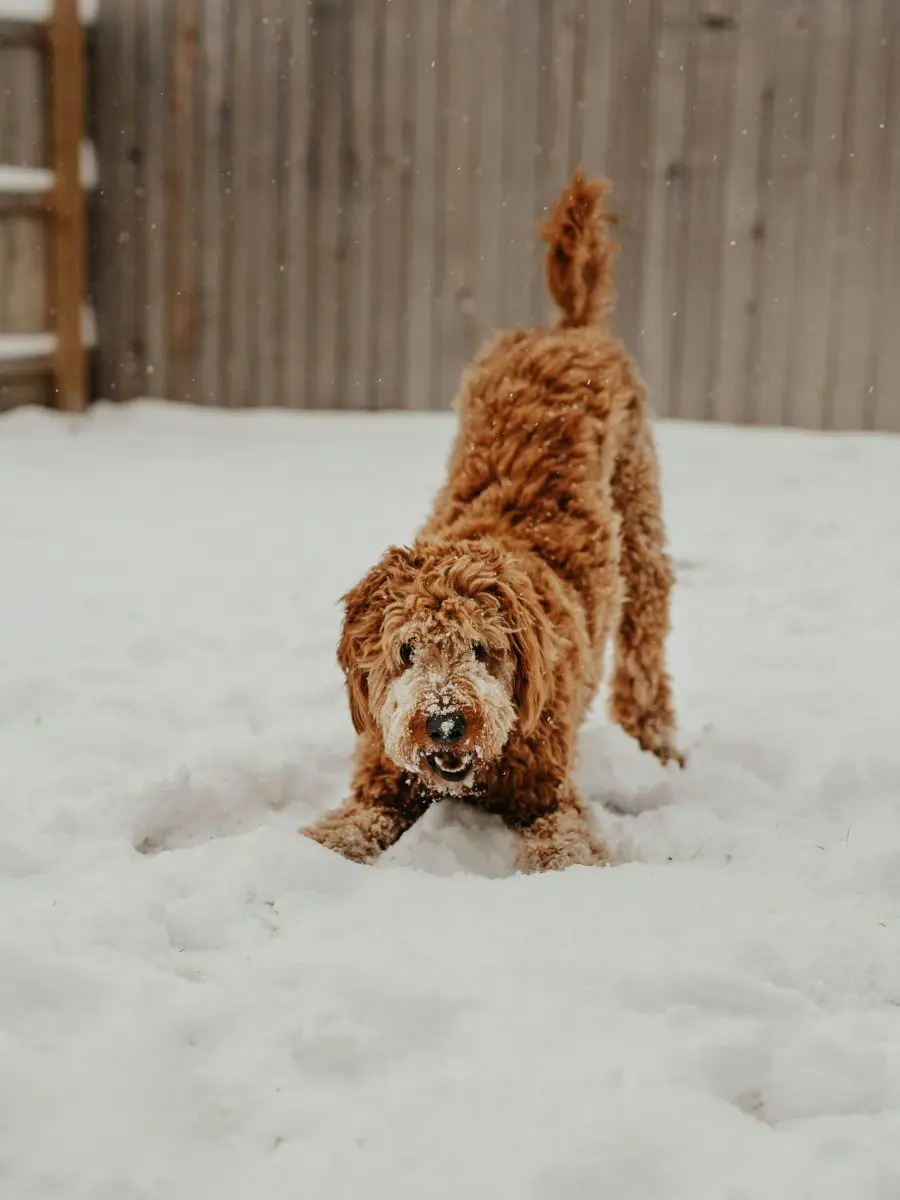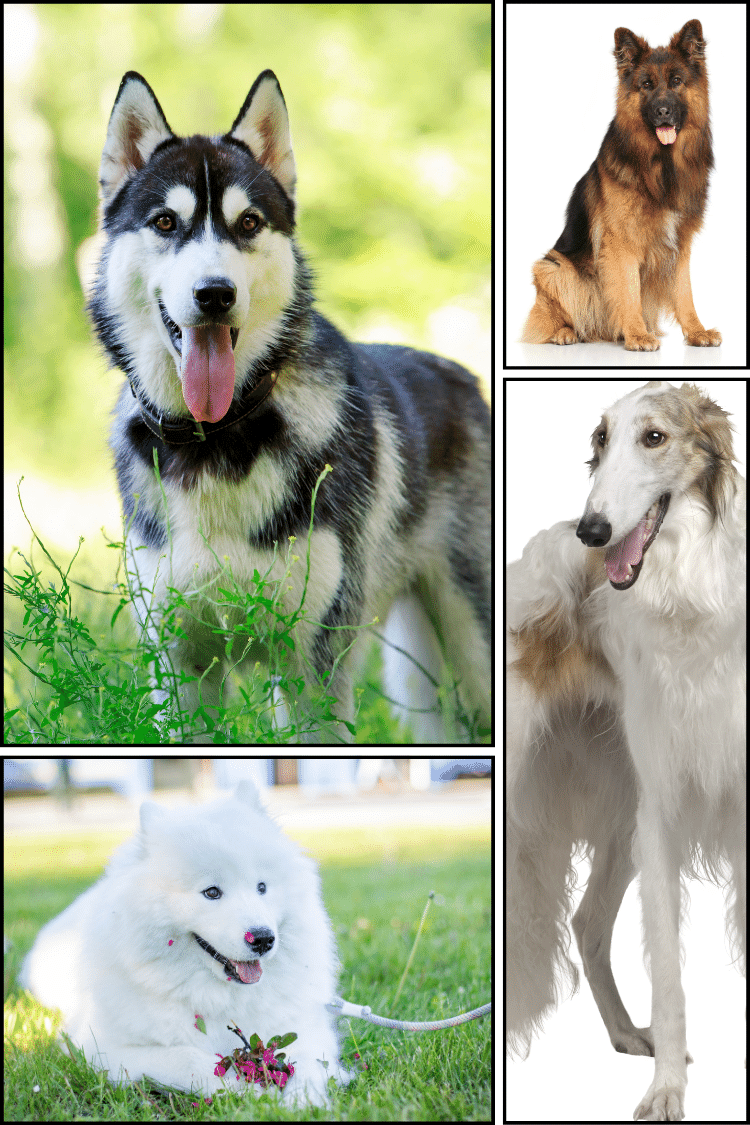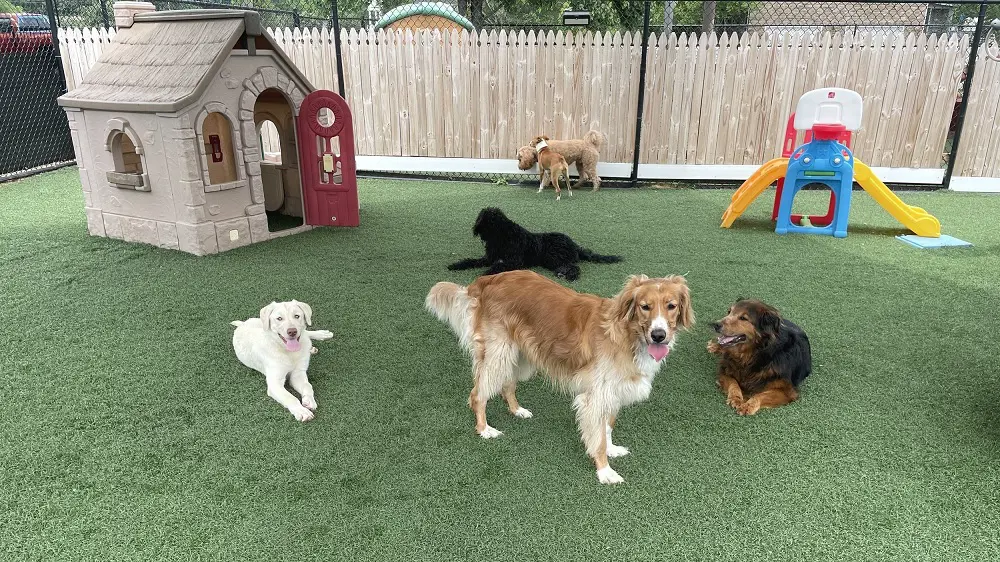Why Does My Dog Dig?

Dog digging is a behavior that many pet owners encounter, often leaving them puzzled and seeking explanations. This instinctual activity can manifest in various contexts, from the backyard to the living room, and is sometimes a source of frustration.
Observing a dog energetically clawing at the ground or a carpet can prompt a range of emotions, from amusement to concern. Understanding the nature of this behavior can be key to addressing it effectively.
Natural Actions
Dogs are very strongly genetically prepared to dig sources due to their reliance at some point on the habits of their wild ancestors, they used to dig good free layaways not only for concealment from predators but also as protection from bad weather. More importantly, such dens could provide a haven for raising the children properly.
The digging instinct is most strongly represented in those breeds that have been developed either for explicit digging or for hunting small prey that has burrowing habits, like terriers and dachshunds. This need doesn't shut off even in a domestic mode, though such methods of survival are no longer necessary in residential areas.
Those owners who realize that digging is an instinctual behavior will be more tolerant and easier on themselves in dealing with the situation.
Control Of Temperatures
Dogs do much digging for thermal control reasons, keeping themselves cool or warm, they may avoid extreme weather conditions, and in hot weather, it will often be considerably cooler just inches below the surface. In such scenarios, dogs can excavate this cooler level of earth simply by digging a shallow hole and can create a more comfortable resting spot.
More common in thick-coated breeds, such as huskies and malamutes, or those dogs that tend to overheat, the pet drills out a sort of den that is going to provide shelter from cold, wind, or any other undesired element of the weather during cold conditions.
It's important for you as a pet owner to be in a position where you can figure out if your dog is digging because of temperature regulation and provide some alternatives. Make sure your best friend has plenty of shade and water for ways to cool down in the hot months.
Boredom

Canine dig primarily because of boredom, since dogs are active and intelligent animals, they need some kind of activity to keep them fit and happy. If this exercise is not provided, then digging will be done for entertainment and as an outlet for high energy, this is more so in the case of dog breeds with a high energy level, like Terriers, Labradors, and Border Collies.
Any dog that is kept isolated has very few toys, and has inadequate exercise will have it revert to digging very frequently as a coping mechanism, if it were in the garden or the yard, that would keep it occupied and provide some release in the physical aspect. They shall do this simply for the sake of attracting some attention, knowing this, if it worked in the past, dogs will continue to dig into their heart's desire, trying to get that attention again if it means having their human come out to correct or redirect them.
Anxiety Or Stress
It is, therefore, reasonable that two of the major variables giving rise to digging in dogs are stress and anxiety. Similar to human beings, dogs are disposed to suffer from anxiety either noise-induced, separation, or just a change in their environment, digging behavior becomes a coping mechanism, and a momentary form of relief or diversion will ensue from some such feelings.
Moreover, changes in the environment for example, moving to a new house, the addition of a new pet or family member, and changes in routine may cause digging and stress. This is because the canine will drill to have a safe area to be in due to the uneasiness and nervousness that they feel toward these developments.
Senses Of Hunting
Dogs were originally bred for hunting, and this ability is still inherent in most pet canines today. Hunting instincts can manifest in the form of digging, more so if there is the scent of small animals, like insects or rats, among other digging creatures.
They are mostly common in breeds that have been bred to hunt and then dug out their prey, Beagles, Terriers, and Dachshunds are examples of this type. If such a dog has hunting motivation, then other recreational outlets other than those for natural hunting drives will help establish control over digging behaviors.
Moreover, they can scoop for insects, for example, ants or beetles, in the concentration high spots of the gardens, this natural behavior is hard to deal with by the owner, more so when the flower beds, lawns, or vegetable gardens are damaged. Noisy toys or puzzle toys with treat dispersions during interactive play may help them satisfy the hunting drive.
Keeping Food And Toys Hidden

Moreover, dogs dig for many reasons, most of which are to bury food or toys, which in turn is normal behavior instigated by their ancestors' instincts for life. Their forefathers are used to burying plenty of food that keeps them safe from other scavengers only to get to the same spot another time when the food used to become scarce.
This instinct of storing provisions has even been retained in domestic pets, it is the very behavior of saving something for later that has been retained in canines, manifesting in digging to bury a bone, toy, or some special treat.
You can control this behavior partly by providing your dog with a sandbox or a specific area to drill where he buries things, a good supply of various toys and plenty of interactive play can satisfy the mental urge a great deal and should reduce the need to hide other things under the ground.
Trying To Escape
Dogs express a way to dig their way out of a yard, kennel, or other confinement, other unwanted behaviors have many underlying motivations, but mainly it is boredom, fear, curiosity, or an urge to explore. However, as in all his behavior, if the dog realizes he or she is confined or limited, then digging represents a sure way out, quite naturally, an instant getaway to be free and wild or satisfy the itch of wandering.
Other dogs, however, have such a high hunt drive or are inherently wanderlust that they simply cannot help themselves to get out, loud noises may scare dogs, like fireworks or even thunderstorms, where they try to get away and then seek someplace safer. Dogs also often dig to satisfy their natural curiosity, curiosity about strange noises, or the scent of another animal.
In Search Of Water
A thirsty dog may dig in if he is not able to quench his need for a sufficient amount of water, this behavior is very common outdoors, especially in areas with limited or absolutely no natural water supplies that can easily be accessed. Dogs dig instinctively to reach the soils that are cooler and moister beneath the surface of the ground in areas that are normally hot and dry.
They also dig in an attempt to access the water in case they are outdoors and can't find any source that they are comfortable with. This is a result of their survival instincts because wild dogs tend to dig beside a riverbank or near streams or another body of water to quench their need for fresh and clean water.
Playing Nature

Digging is a common play behavior for active dogs looking to have some fun, when involved in play digging, a dog will tend to be having a good time and, rather often, excited and elated. Playing behavior, such as running around or jumping around and playing with toys, may be attributed to sudden short bouts of playful digging.
They socialize by doing digging so that in case they are brought up with other dogs, they will hide and find toys in the dug-out dirt or simply dig beside each other and run around the holes they dig as they chase each other. Other than physically keeping them fit, such play helps them improve their social skills and learn to live in a community.
Curiosity
Curiosity is the number one digging behavior exhibited in dogs. Being inherently curious animals, dogs have to investigate their environment. This curiosity can sometimes be a compelling reason for investigating and digging up unusual smells, noises, or even visions, the same holds for Terriers, Beagles, and Bloodhounds, whose keen olfactory senses make them track down easily.
Puppies and young dogs dig a lot out of curiosity while familiarizing themselves with their environment, using this exploratory behavior, they improve their perceptual faculties, enhance their cognitive abilities, and acquire knowledge about the world. It is one of the normal and healthy activities in their process of maturation.
Prepare For Pregnancy
Instinctual behaviors can make females protective, such as nesting, when a female, especially a pregnant or nursing, dog is most likely to conduct this behavior, it is the time when she is trying to create an area safe and comfortable enough for her puppies. The hormonal changes will then trigger the instinct of nesting, the desire to build a safe place where she can deliver her pups and raise them.
A pregnant dog may start digging for a place that looks secure and safe, the trait is copied because, from their primitive behaviors, they would dig dens for protection from predators or adverse climatic conditions for their puppies. Even if your dog has a comfortable place to live inside, she may still burrow under blankets and beneath bedding, or even outside to satisfy her urges of nesting.
Provide a quiet, comfortable, and safe area where the pregnant or nesting dog is to build her nest and ensure that she has comfortable bedding and an area safe enough for her. Observe your dog's behavior at this stage of her pregnancy, and reassure her by providing comfort and confidence to lessen her anxiety over nesting.
How Can I Stop My Dog From Digging

Even though digging is an instinct for the dog, it can be frustrating for owners, stopping a dog from digging requires comprehension of the root cause and attention to it.
Offer Sufficient Exercise
Give your dog sufficient exercise, the more he exercises through frequent plays, brisk walks, and playing fetch games, the more likely he is going to disperse all the energies that would have gone into digging.
Restrict Access
If your dog is a big digger, consider denying access to those places, you can do so with garden fencing or something along those lines. If you can't, then supervising your dog while outside until you have made a new digging area for them is the next step.
Handle Stress And Anxiety
If your dog digs due to some kind of stress or anxiety, then find out precisely what the causes are and take action because of these. Other than providing a comfortable, safe space, look into calming aids such as anxiety shirts. If you're quite clueless about where to get some help, then call up a professional behaviorist or your vet.
Use Long Leash
This way, you can have your dog away from areas they normally dig, yet on a long-line lead, which is excellent for gardening or just walking your dog.
Regular Instruction
Give your dog commands, such as "no dig," then reward him for not digging. He will know what to do if he is given consistent instructions.
Top Lists







